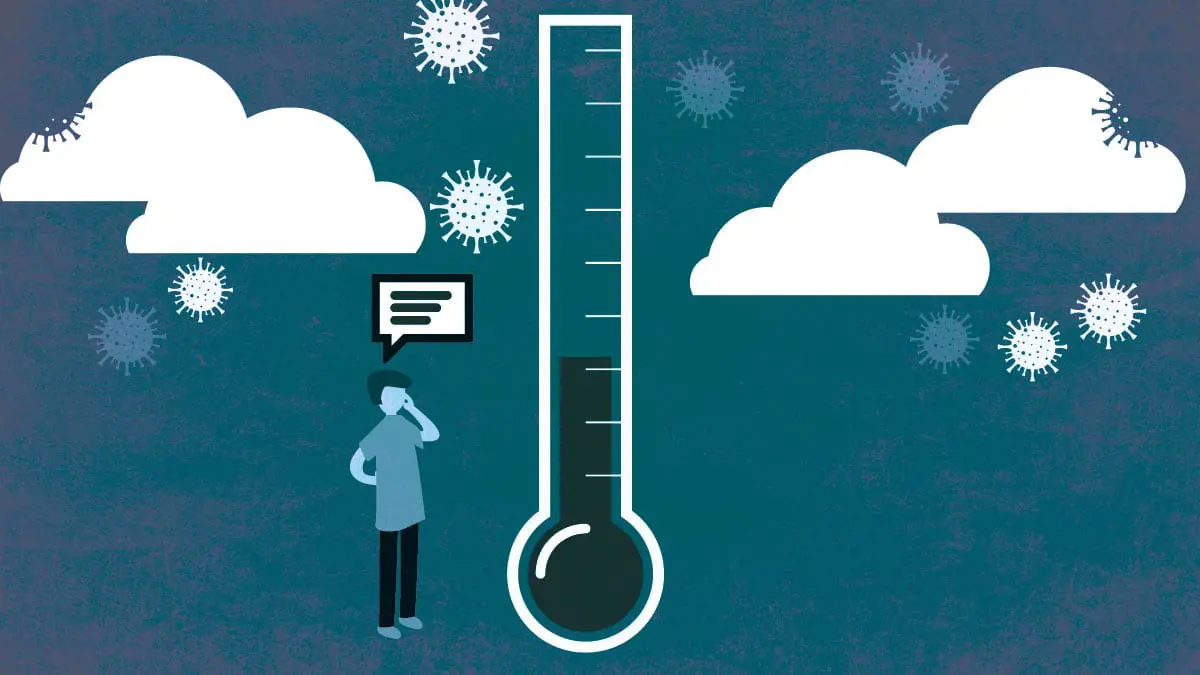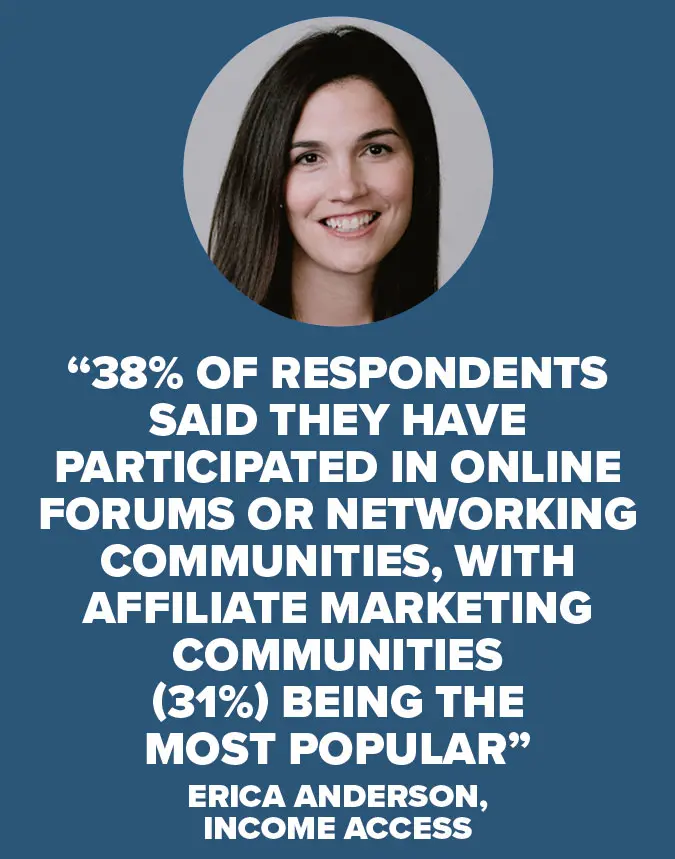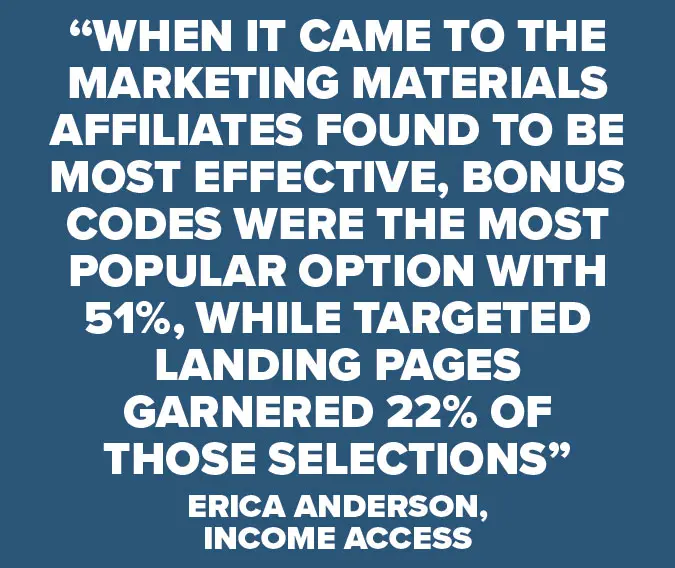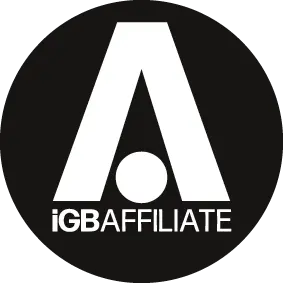

Income Access’ third affiliate survey found that while the majority of affiliates were impacted by Covid-19, the effects varied significantly. Those that escaped its impact did so largely thanks to a diversity of markets and channels, writes ERICA ANDERSON
ccording to results from our 2020 affiliate survey, which was conducted in August and marks our third such poll in the last four years, the impact of Covid-19 on the affiliate marketing industry has been notable and varied. There have been just as many affiliate businesses experiencing an increase in results as those that have seen a decrease. As we detail in this article, the manner in which affiliates have responded to this market shift also varies.
When reviewing these responses, it is important to consider that affiliate respondents represent a wide array of igaming markets, including the UK, Europe, Canada, Latin America, Africa and the United States.
Through the survey, we also explored the most popular promotional strategies and marketing materials, how social media is most commonly leveraged and preferred advertising models. In addition, we asked affiliates to share how they have engaged with online communities and virtual resources, which is where we begin a more detailed review of the results.
COVID-19 AND VIRTUAL COMMUNITIES
One important consequence of Covid-19 has been heightened awareness around online forums and resources that can help to maintain a sense of community and encourage ongoing education related to industry trends. When asked about their own level of engagement, 38% of respondents said they have participated in online forums or networking communities, with affiliate marketing communities (31%) being the most popular. Other communities of interest included igaming (21%), marketing (19%) and gaming industry news (13%).

Keeping with online resources, we asked affiliates how many virtual events and conferences they attended from Q2 onwards. While only 25% of respondents said they had attended one or more virtual events in that timeframe, the result does align with the response to a similar question from our 2017 affiliate survey. In that instance, only 6% of affiliates said they considered attending industry conferences to be their most valuable marketing activity. Both results suggest that while attendance at such events is valuable, participation can also be very time-sensitive and situational.
BUSINESS PERFORMANCE AND PROMOTIONAL FOCUSES
When looking at the direct impact of Covid-19 on business, a majority of affiliates (63%) acknowledged that it had affected performance in the six-month period between February and August. Among these affiliates, it was an even split between those who saw an increase in results (51%) and those who experienced a decrease (49%). Further highlighting this division was the 32% who said their results increased significantly and the 26% where results decreased significantly.
Despite their large number, only 38% of those affiliates who saw a decrease in results said they adjusted their strategy in response. For additional context, affiliates were provided with several options to choose from to demonstrate how they changed their strategy. 24% of the respondents said they targeted new markets, making it the most popular answer. This was followed closely by ‘increased marketing spend’ (21%), while ‘used different channels’ and ‘changed promotional activities’, each garnered 18%. ‘Reduced marketing spend’ was the least popular choice with only 2%.
With these strategic responses in mind, we asked affiliates to elaborate on their current promotional strategies, providing a number of options for them to choose from. Organic search (SEO), selected by 57% of affiliates, was the top choice, followed by social networks (47%) and website/blog ads (40%). The next three choices also saw reasonably strong support as pay-per-click (30%), email marketing (28%) and advertising networks (23%) rounded out the top six options. Offline promotions finished last at just 7%.
As a natural follow-up, we wanted to know what marketing materials affiliates found to be most effective, asking them to rank nine options in order of preference. Bonus codes were the most popular option with 51% making it their first choice, while targeted landing pages garnered 22% of those selections. Targeted landing pages were also chosen second by 20% and third by 29%. Brochures performed well, chosen as the second option by 24%, while targeted banners and social posts were also relatively popular.
Other options, including logos, videos, reviews and text links were all far less popular, combining for just 12% of first selections, 18% of second selections and 37% of third selections.
SOCIAL CHANNELS AND ADVERTISING MODELS
With social networks landing as one of the more popular promotional focuses and social posts a frequently used marketing material, affiliates were also asked which social channels are currently part of their strategy. As was the case in our 2017 and 2018 surveys, Facebook (52%) and Twitter (40%) were the top two selections.
Different this year, however, was that YouTube (40%) rose to tie as the second most popular response, while Instagram (36%) also had its best showing when compared to previous surveys. Twitch finished with 13%, while a somewhat surprising 19% said they do not use any social channels.
When affiliates were asked to look ahead and consider what social media channels they are likely to focus on moving forward, Facebook was the top response (35%), followed by YouTube (31%), Twitter (27%), Instagram (25%) and Twitch (17%).

Although it is important to understand the strategic approach of affiliates and the tools used to execute that approach, an similarly important question comes down to the advertising models through which they are compensated. This year, as in previous surveys, revenue share (77%) was the most popular selection when affiliates were asked which models they currently use. This was followed by cost per action options was flat fee (33%), cost per click (CPC, 17%) and cost per mille (CPM, 11%).
Notably, 63% of affiliates who selected many are likely on a form of hybrid model.
As seen above, many affiliates have been forced to respond, or at least consider a response, to ongoing global challenges. Fortunately, this current environment has also highlighted their resolve and consistency, specifically when it comes to establishing a diverse market strategy that leverages multiple promotional focuses. This commitment to diversity emphasises the nimbleness of affiliates and their ability to pivot or evolve when needed, driving long-term optimism in their role as a valued marketing channel.

ERICA ANDERSON is marketing director for Paysafe’s Income Access. Her role focuses on developing the marketing strategy for the Income Access brand. Holding a decade’s industry experience, Erica also oversees the company’s in-house affiliate management team and its suite of digital marketing services. Income Access manages close to 20 affiliate programmes.
